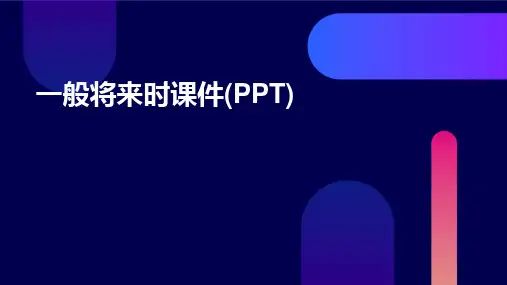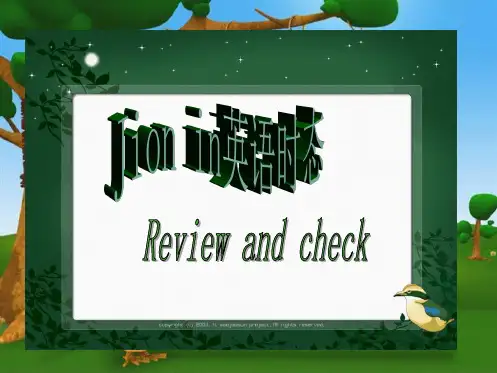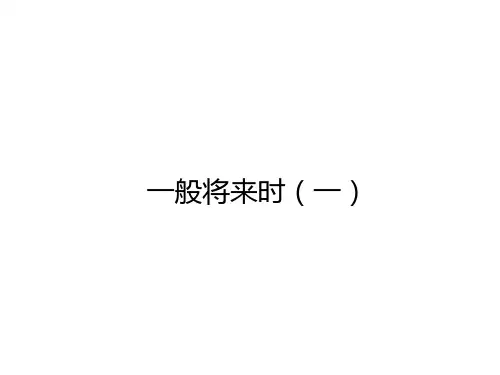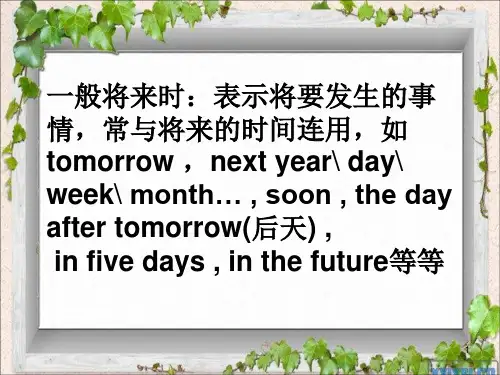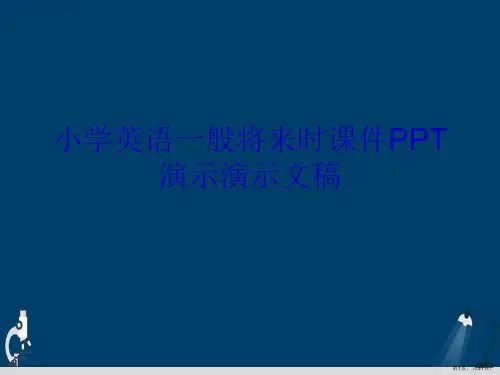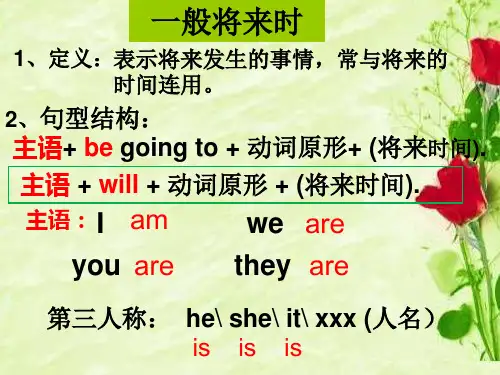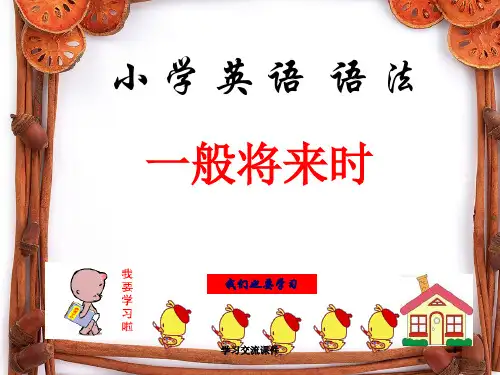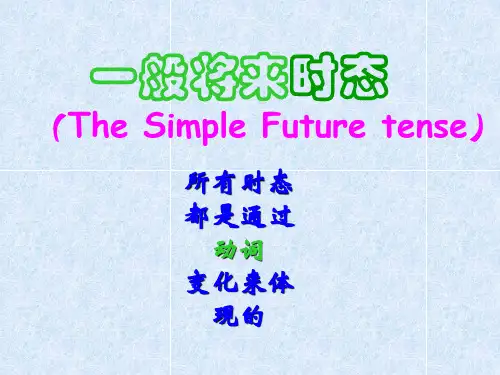一般情况,一般将来时的对划线部分有三种 情况。 1. 问人。Who 例如:I’m going to New York soon. →Who’s going to New York soon. 2. 问干什么。What … do. 例如: My father is going to watch a race with me this afternoon. →What is your father going to do with you this afternoon. 3. 问什么时候。When. 例如:She’s going to go to bed at nine. →When is she going to bed?
一般疑问句
be或will提到句首,some改为any, and改为 or,第一二人称互换。 例如:We are going to go on an outing this weekend. → Are you going to go on an outing this weekend?
对划线部分提问
一般将来时
一般将来时的意义: 表示将要…..,将会做….,打算去做….. 如:它将要下雨了。 我打算去买一本书。 我们明天将会去中山公园。
提示动词
句中一般有以下时间状语:tomorrow, next day(week, month, year…),soon, the day after tomorrow(后天)
( B ) 8. – Will his parents go to see the movie tomorrow? – No, ________ (不去). A. they willn’t. B. they won’t. C. they aren’t. D. they don’t. ( B ) 9. We ________ the work this way next time. A. do B. will do C. going to do D. will doing
